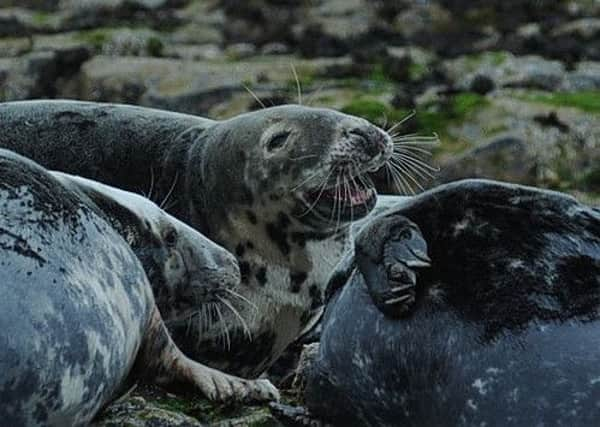Fish farm increase could lead to more seals being shot


The Scottish Association for Marine Science paper found the impact of proposed salmon sector expansion would be most “significant” on the sea mammals.
Acoustic deterrent devices (ADDs) are the most common form of technology used to resolve the issue in Scotland at present.
Advertisement
Hide AdAdvertisement
Hide AdBut academics have called for new non-lethal methods to be developed to discourage the predators from attempting to hunt the farmed fish, as questions still surround the effectiveness of ADDs.
The report said: “Although current downward trends in seal shootings are encouraging, these may stabilise or reverse in case of significant future expansion of the industry including into more remote, exposed and/or offshore areas.
“There is an urgent need to further develop and promote alternative non-lethal depredation prevention methods that do not also have such a widespread impact on the surrounding environment as ADDs.
“Over the years, the Scottish salmon sector has invested heavily in ADDs as a non-lethal alternative to shooting seals.
“Significant fundamental questions remain, however, about the mechanisms and long-term efficacy of ADDs in deterring seals.
“In other words, whether they actually work has yet to be convincingly proven.”
The recommendations come in the Review of the Environmental Impacts Of Salmon Farming in Scotland Report, which has been submitted to parliament ahead of an investigation into the industry.
Environment, Climate Change and Land Reform Committee convener Graeme Dey said: “Our committee’s inquiry will focus purely on the environmental impacts of salmon farming and this report provides the scientific basis from which to explore these.
“To help inform that process, we are now inviting views from the public on the issues covered in the report and the environmental interaction of salmon farming within the wider marine environment.”